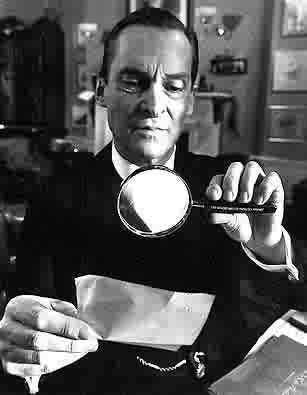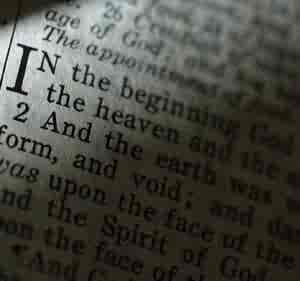|
restoring our biblical and constitutional foundations
|
The Power of Personal Observation
I have just finished reading the Greek text of the
book of 1 Thessalonians. Even though I have read this epistle many times
and have done a complete discourse analysis of the original text, I realize
that I have
 barely
scratched the book’s surface and have barely begun to mine its depths. I
feel somewhat like Sherlock Holmes, only that his life was an astonishing
example of observation while mine, it seems, is an example of an
astonishing lack of observation.
barely
scratched the book’s surface and have barely begun to mine its depths. I
feel somewhat like Sherlock Holmes, only that his life was an astonishing
example of observation while mine, it seems, is an example of an
astonishing lack of observation.
I often wonder what my growing up years in Hawaii might have been like had I been more diligent about studying God’s Word on my own, including the book of 1 Thessalonians. My abysmal work ethic – 1 Thess. 4:9-12! My lack of spiritual power – 1 Thess. 5:19! My apathy toward missions – 1 Thess. 1:8! My nonexistent prayer life – 1 Thess. 5:17! And the strangest thing about it, I fancy, is that, while I knew I needed to study the Scriptures on my own, I did not do it. I mention this only because it introduces a salient theme in my own teaching, namely that every Christian has a chrisma, an anointing from the Holy One, and has no need for any man to teach him (1 John 2:27). Of course, it is a man (the apostle John) who teaches us that!
Growing up it seemed to me that the pedestaled
curates were more intelligent than anyone else, that they alone had access
to the truth of the Bible. For that reason I listened to the “experts” and
even got involved for a while with a group of Thieme-ites in Waimanalo,
who were slavishly devoted to their teacher. I thus confined myself to a
glass of milk when a wealth of steak and lobster was there for the taking.
I suppose in some hazy and hearty fashion I was making progress in
holiness, but I missed out on many an ample and sumptuous meal by my
neglect. My own growth – personal spiritual growth – began at 16
years of age when I fell in love with the Scriptures for the first time. I
began to read and to study, almost “without ceasing,” a Bible called
Good News for Modern Man, line drawings and all. From this time also
dates the first
 faint
beginnings of my own divergence from the evangelical group-think of my day
on such issues as the Synoptic Problem. I now take great pleasure in
challenging my own students to question the status quo and the
caricaturists of biblical Christianity by exploring the Scriptures on
their own.
faint
beginnings of my own divergence from the evangelical group-think of my day
on such issues as the Synoptic Problem. I now take great pleasure in
challenging my own students to question the status quo and the
caricaturists of biblical Christianity by exploring the Scriptures on
their own.
If solid biblical teaching is necessary for Christian living (and it is), it is less clear to me that teaching must always take place behind the “sacred desk.” In my mind there is simply no justification for our over-dependence on specially gifted teachers for our spiritual diet. Nor should believers depend on professionals to do all the burden-bearing, visiting, or admonishing that is needed in our churches. No man can (or ought to) shoulder the burden of God’s people. A common ministry of mutual edification and admonition is the only way to fulfill Christ’s law (Gal. 6:1).
It is tragic, I think, that we tend to maximize the importance of the sermon and choose to neglect the renewal that comes from personal, detailed Bible study. Man’s words cannot even begin to compare with God’s Word. At the very least, I would suggest that we spend as much time reading the pure Word of God as we do listening to the sermons of men.
I shall always feel gratitude like that of the blind man in John’s Gospel who could confess, when challenged by the conventionalists of his day, “Whether the man is a sinner of not, I do not know. But this I know, that whereas once I was blind, now I see.”
February 2, 2008
David Alan Black is the editor of www.daveblackonline.com.